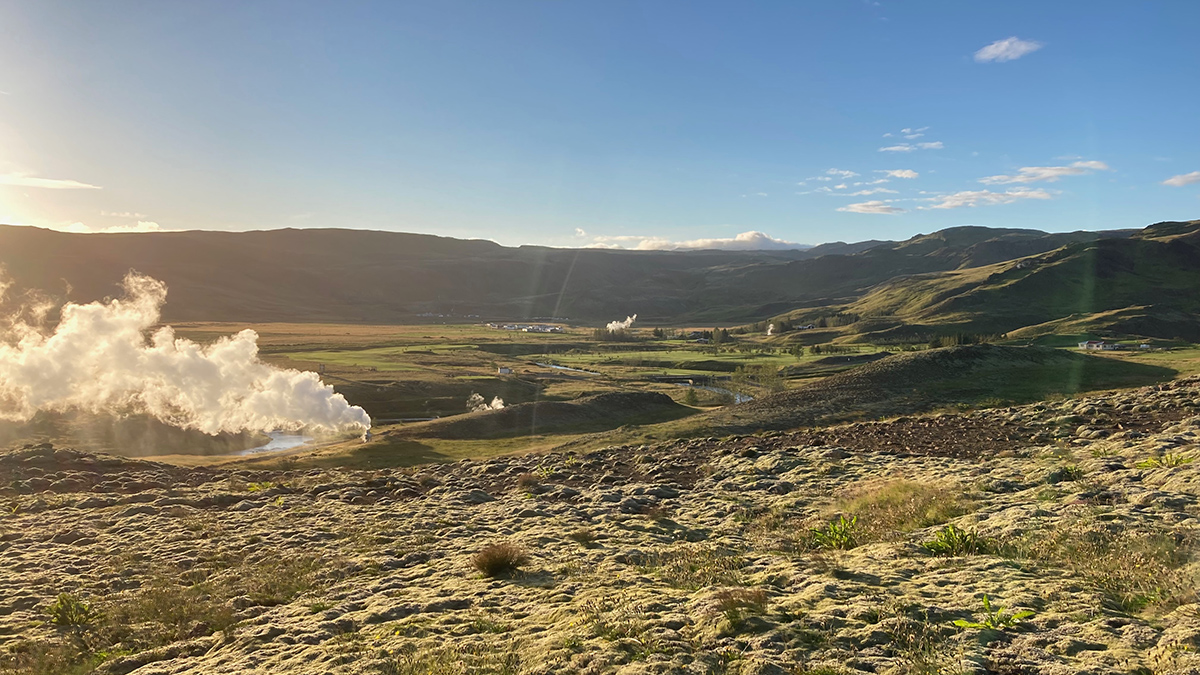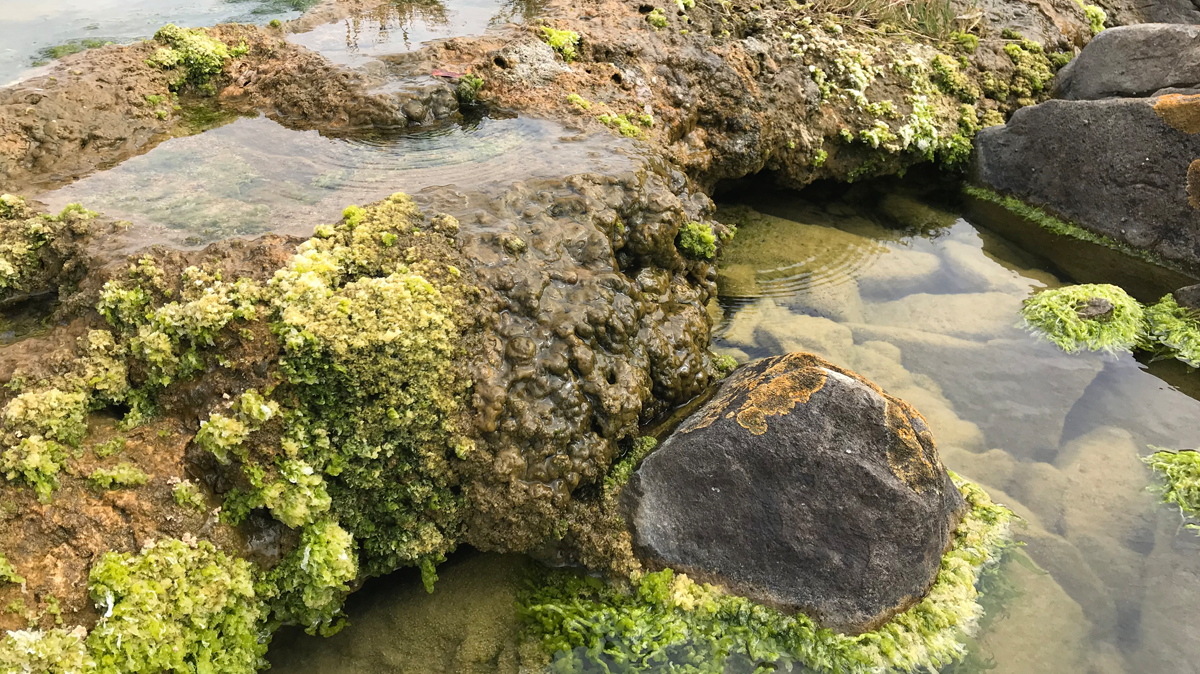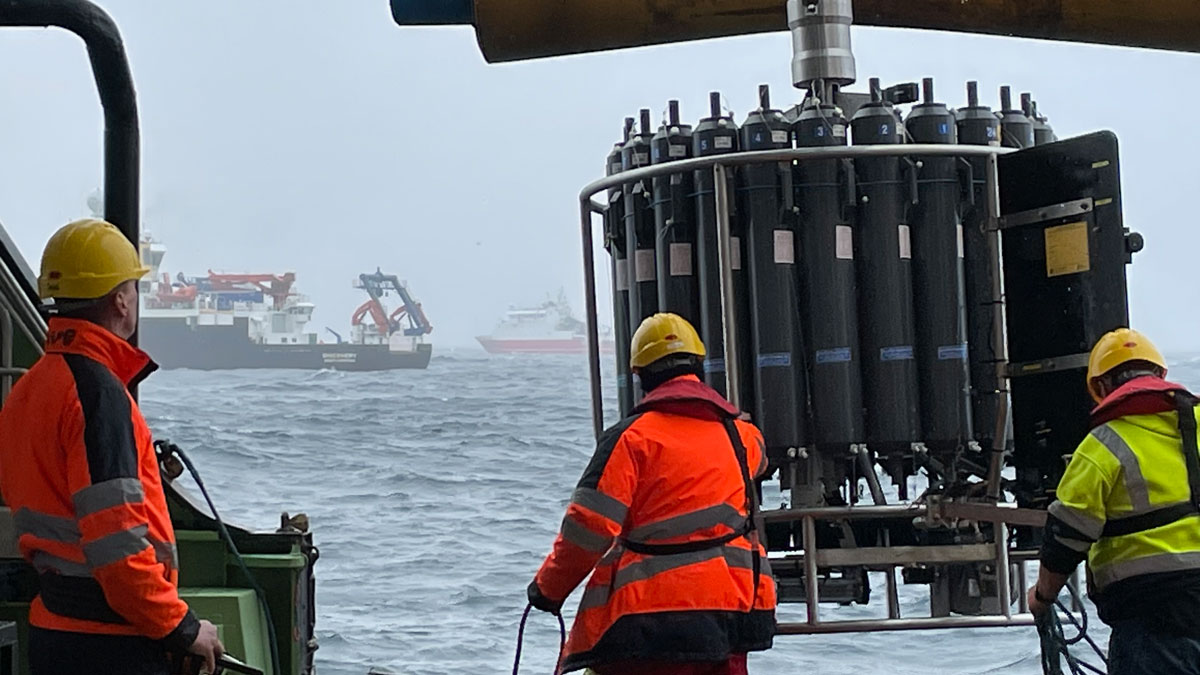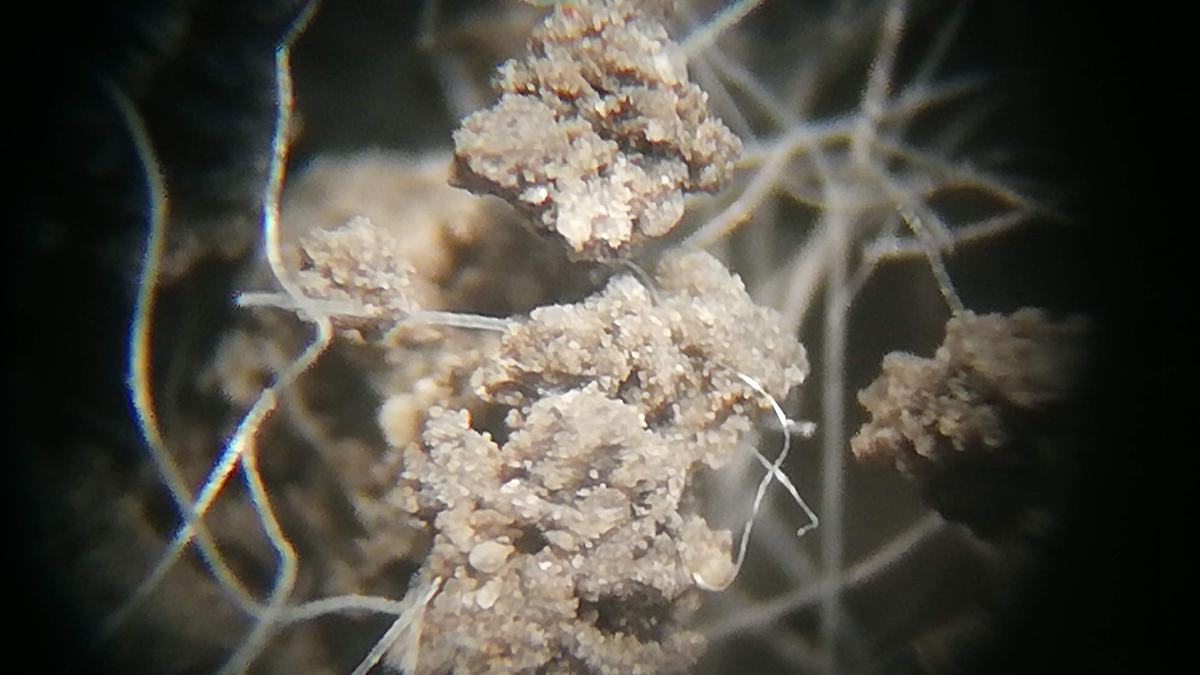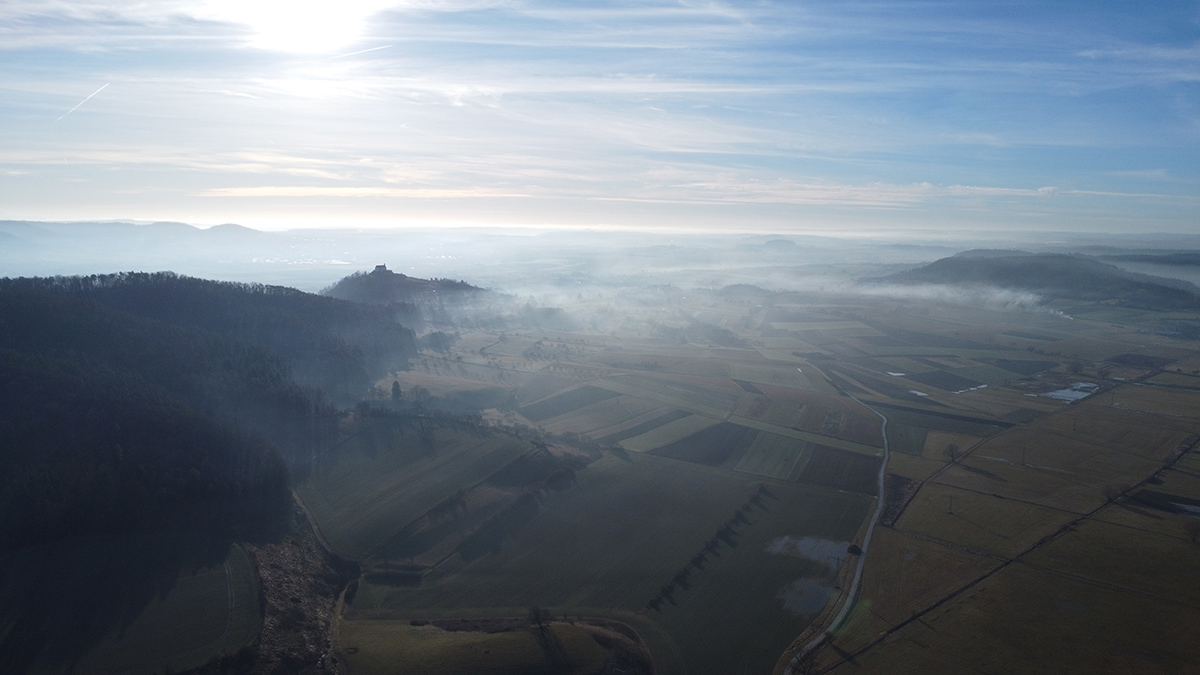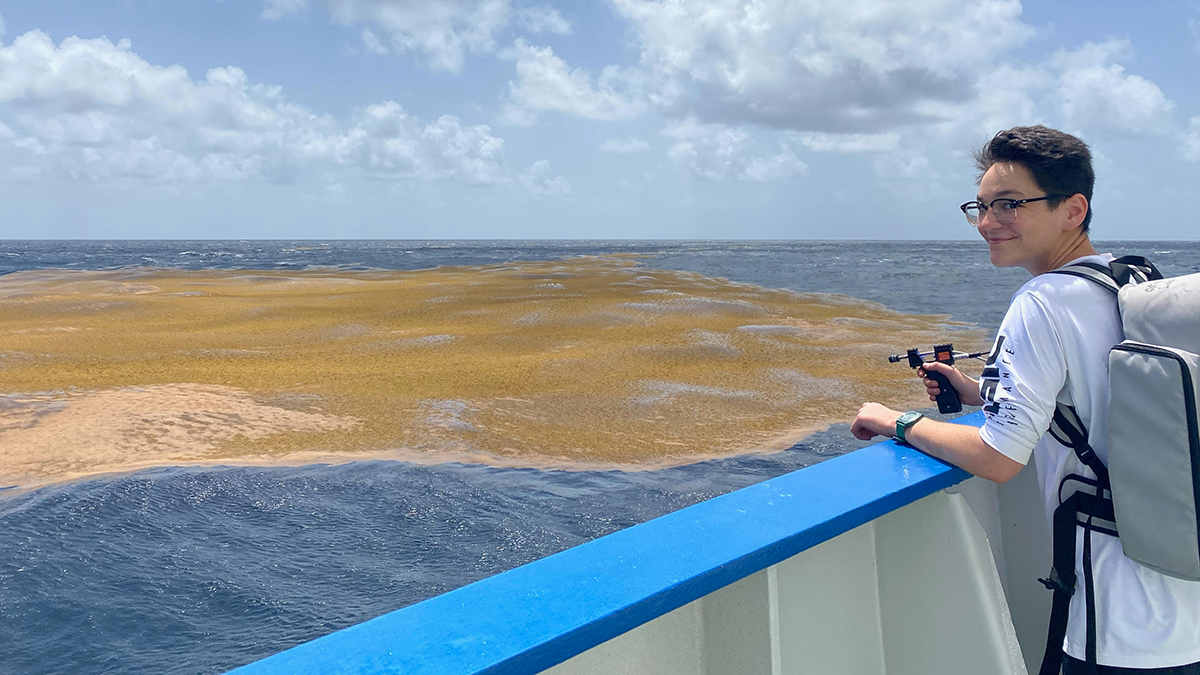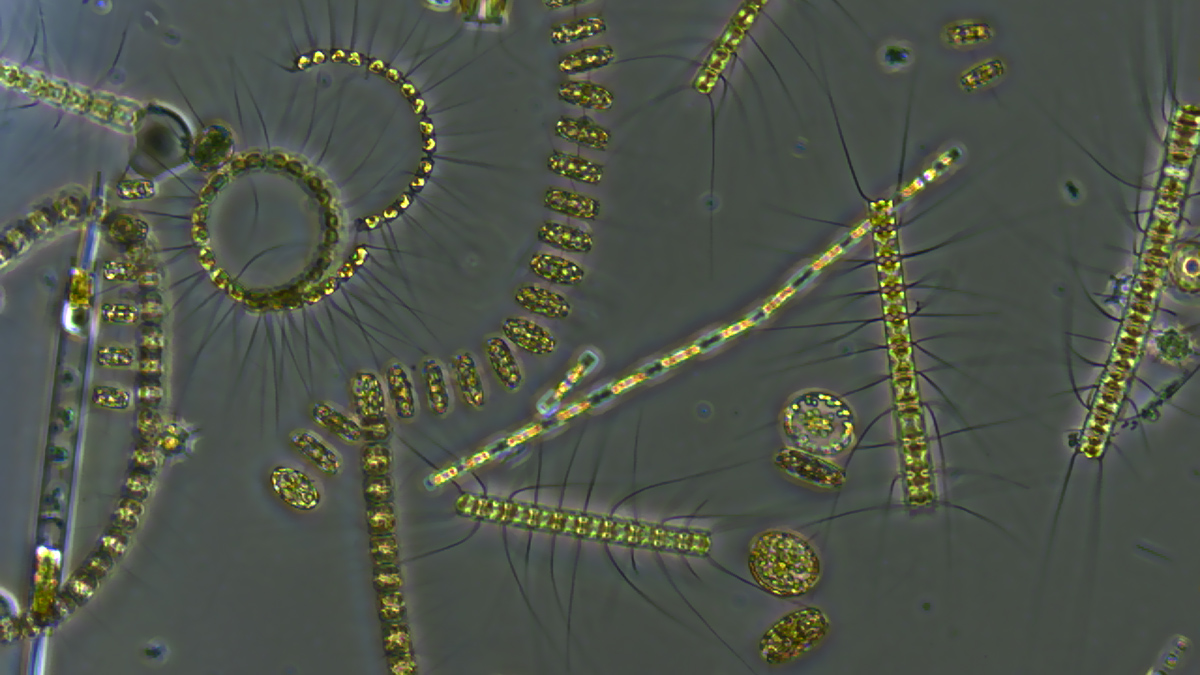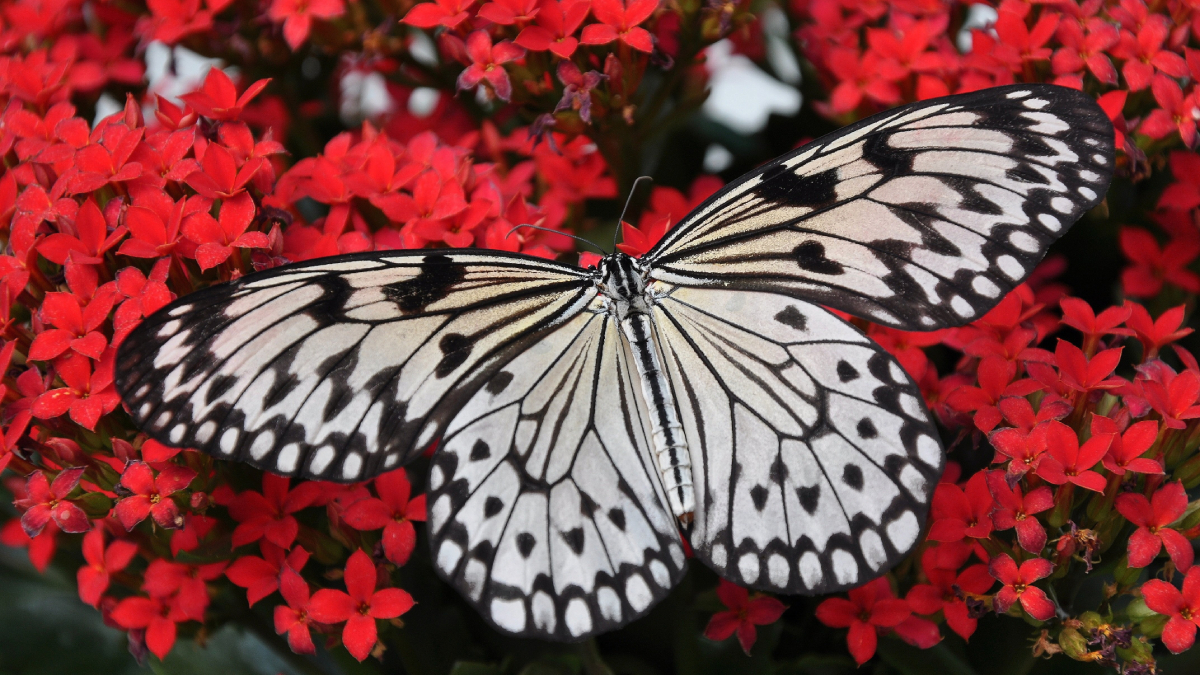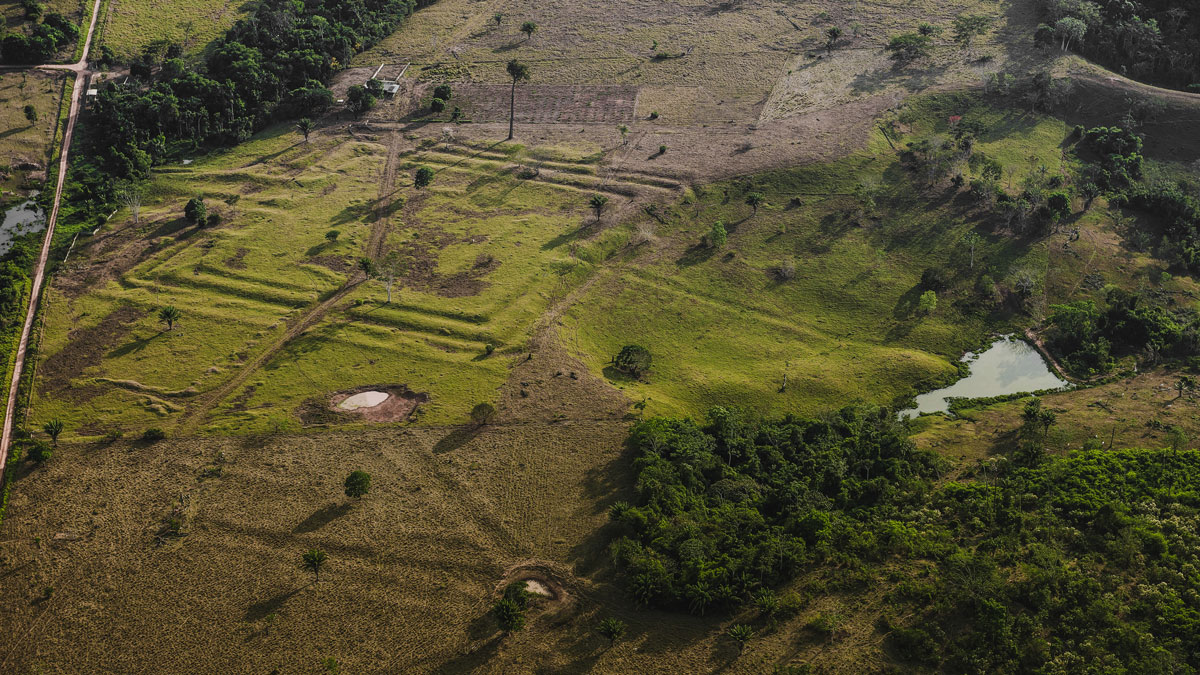A study in Iceland found that microbes are hoarding more nitrogen for themselves, altering nutrient cycling and leaving less for plants.
biogeosciences
Rocks Formed by Microbes Absorb Carbon Day and Night
Microbialite ecosystems in South Africa stored an “astonishing” amount of carbon, according to new research.
Marine Snow Grows Faster and Fluffier as It Sinks
New observations highlight how abiotic and biotic processes influence the tiny oceanic particles.
Los microplásticos tienen efectos muy variados en el suelo
Un nuevo estudio revela que una concentración de microplásticos de tan solo el 0,4 % altera el drenaje del suelo, lo que podría afectar al crecimiento de los cultivos y otras plantas.
Microbial Genes Could Improve Our Understanding of Water Pollution
New research in Germany’s Ammer floodplain examines microbial biomarkers to help improve modeling of denitrification.
The Northern Sargasso Sea Has Lost Much of Its Namesake Algae
There’s less than a tenth as much Sargassum as there was a few years ago, a shift that may be linked to increasing sea surface temperatures in the Gulf of Mexico.
How a Move to the Shallows 300,000 Years Ago Drove a Phytoplankton Bloom
And what that could mean for today’s ocean.
Las olas de calor marinas lentifican el flujo de carbono de los océanos
Cuando el plancton se encuentra en agua caliente, la materia orgánica se estanca en la superficie e interrumpe el transporte de carbono hacia el fondo océanico.
Climate Change Could Drive Butterflies and Plants Apart
Insects and the plants they depend on are migrating in response to climate change, but not always in the same way.
How Ancient Indigenous Societies Made Today’s Amazon More Resilient
Portions of the forest managed by pre-Columbian populations hold higher biomass and are more able to withstand climate change.

